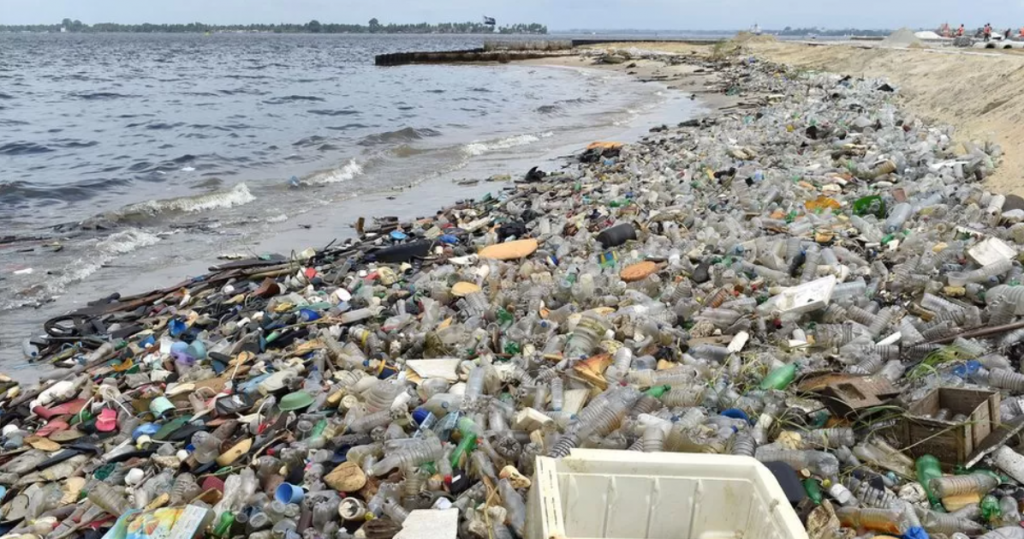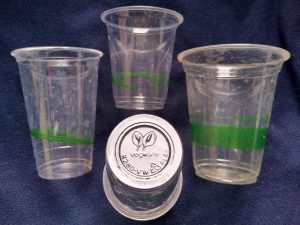According to the United Nations Environment Programme, today, “about 400 million tonnes of plastic waste” is produced every year. The amount of plastic waste generated has risen significantly in a single decade compared to the last 40 years.
One of the biggest problem with plastic waste is that plastics can not breakdown in a short period of time. It can take up to 500 – 800 years for a piece of plastic to be broken down by UV radiation – light from the sun.

Plastic waste along the shoreline. Source
Researchers at the University of California, Berkeley have invented a new way to decompose polyester based plastics much quicker. Simply with heat, water, and nano-dispersed enzymes.
Dr. Ting Xu, a UC, Berkeley professor and her research group developed an enzyme that is able to eat away at the polymers in plastics. These nanoscale polymer-eating enzymes are embedded into plastics as they are being made. To prevent the enzymes from activating when not required, a random heteropolymer (RHP) coating is applied to hold the enzymes without restricting the flexibility of tensicity of the plastics.

Plastic cups made from biodegradable plastics. Source
The enzymes were wrapped around plastic resin beads. These beads were then melted and molded into usable consumer plastics. Xu likened this process to organic composting. By adding water and heat, the enzymes, the RHP polymer coating is removed and starts eating away the polymers into smaller subunits.
The research conducted by Xu and her group found that the enzymes took about a week to degrade most of the plastics. Polylactic acid (PLA) and polycaprolactone (PCL) based plastics embedded with nanoscale polymer eating enzymes are able to break down the polymer chains into small molecules, such as lactic acid.
It is clear that there is still more research needed in this field. Currently, Xu is developing other modified RHP-wrapped enzymes that can stop the degradation process at specific points in it’s degradation so that the polymers can be recycled into new plastics.
Moving forward, Xu has high hopes for the polymer eating enzymes to change the way we look at recycling and that it will start a conversation about the way humans interact with the Earth.
According to Xu, “[humans] are taking things from the earth at a faster rate than we can return them. Don’t go back to Earth to mine for these materials but mine whatever you have, and then convert it to something else.”
~ Raymond Tang
